5 September 11am
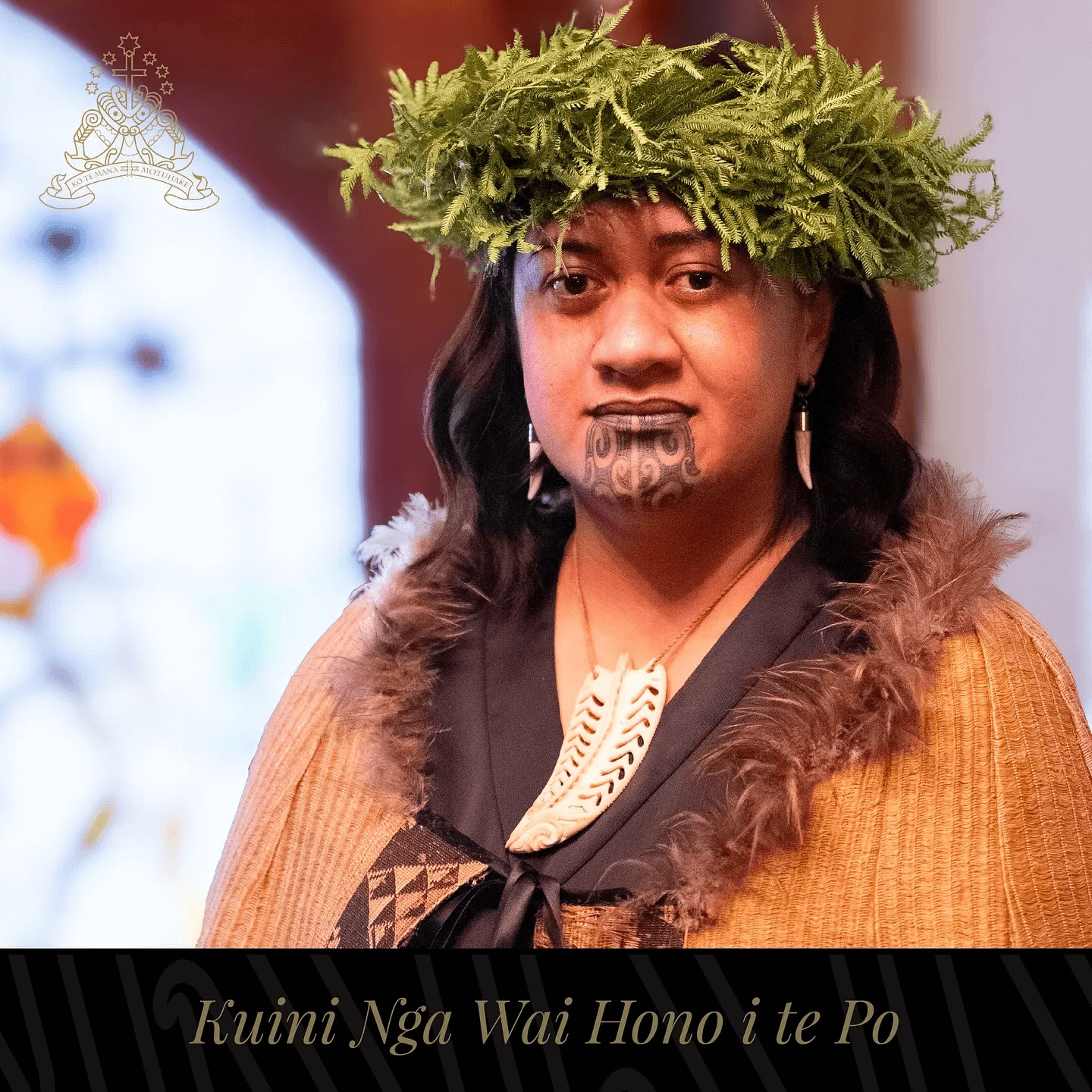
Kuini (Queen) Ngā Wai hono i te Pō. Photo: Kiingitanga
Kiingi Tuheitia’s youngest child and only daughter was announced as the new monarch of the Kiingitanga on Thursday morning.
Te Puhi Ariki Ngawai Hono i te Pō Paki is the eighth Māori monarch and the second woman. The first woman to hold the position was Kiingi Tuheitia’s mother, Te Atairangikaahu, who died in 2006. And at 27, Ngawai Hono i te Pō is also the second youngest Māori monarch to be appointed.
Ngā Wai Hono i Te Pō Paki had been favoured to ascend the throne, although the selection was not a foregone conclusion.
Tekau maa-rua – the 12 – is the Kiingitanga council made up of 12 representatives from iwi across the motu. It played a key role in deciding the new monarch, alongside other rangatira, leaders, from around the country. The council has been in wānanga over the last few days coming to this final decision.
5 September 5am
5 September, 5am
Today marks the final day of the tangihanga of Kiingi Tuheitia Potatau Te Wherowhero VII, who was this morning to be taken to his final resting place on Taupiri maunga.
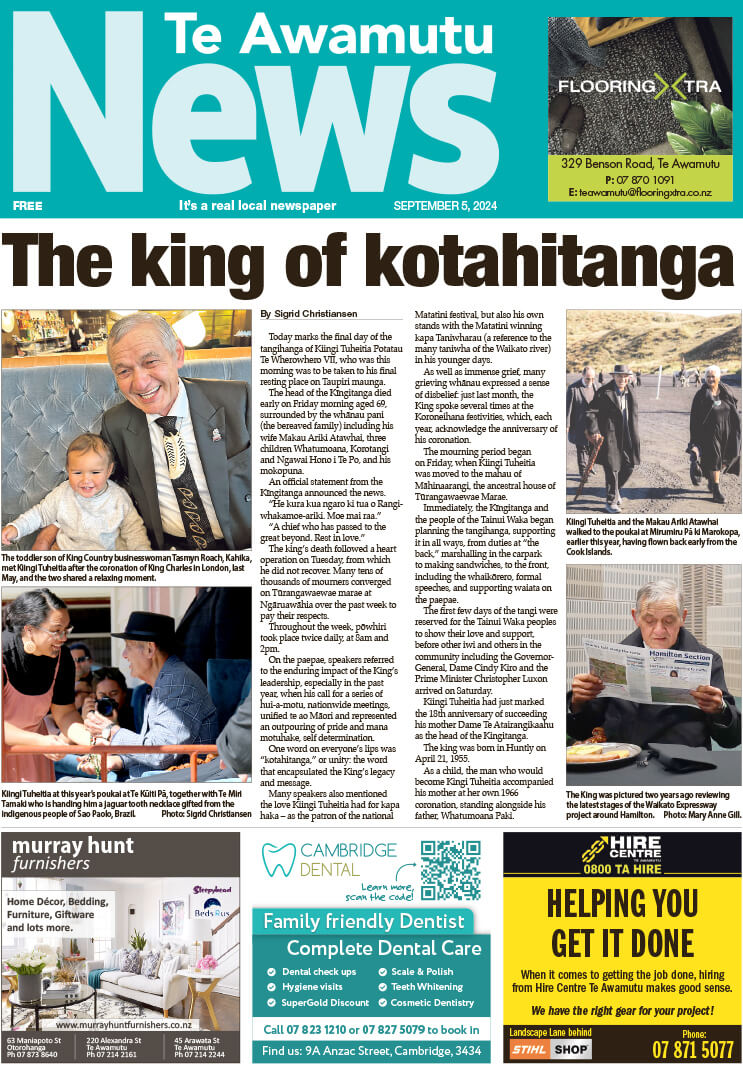
Te Awamutu News 5 September 2024
The head of the Kīngitanga died early on Friday morning aged 69, surrounded by the whānau pani (the bereaved family) including his wife Makau Ariki Atawhai, three children Whatumoana, Korotangi and Ngawai Hono i Te Po, and his mokopuna.
An official statement from the Kīngitanga announced the news.
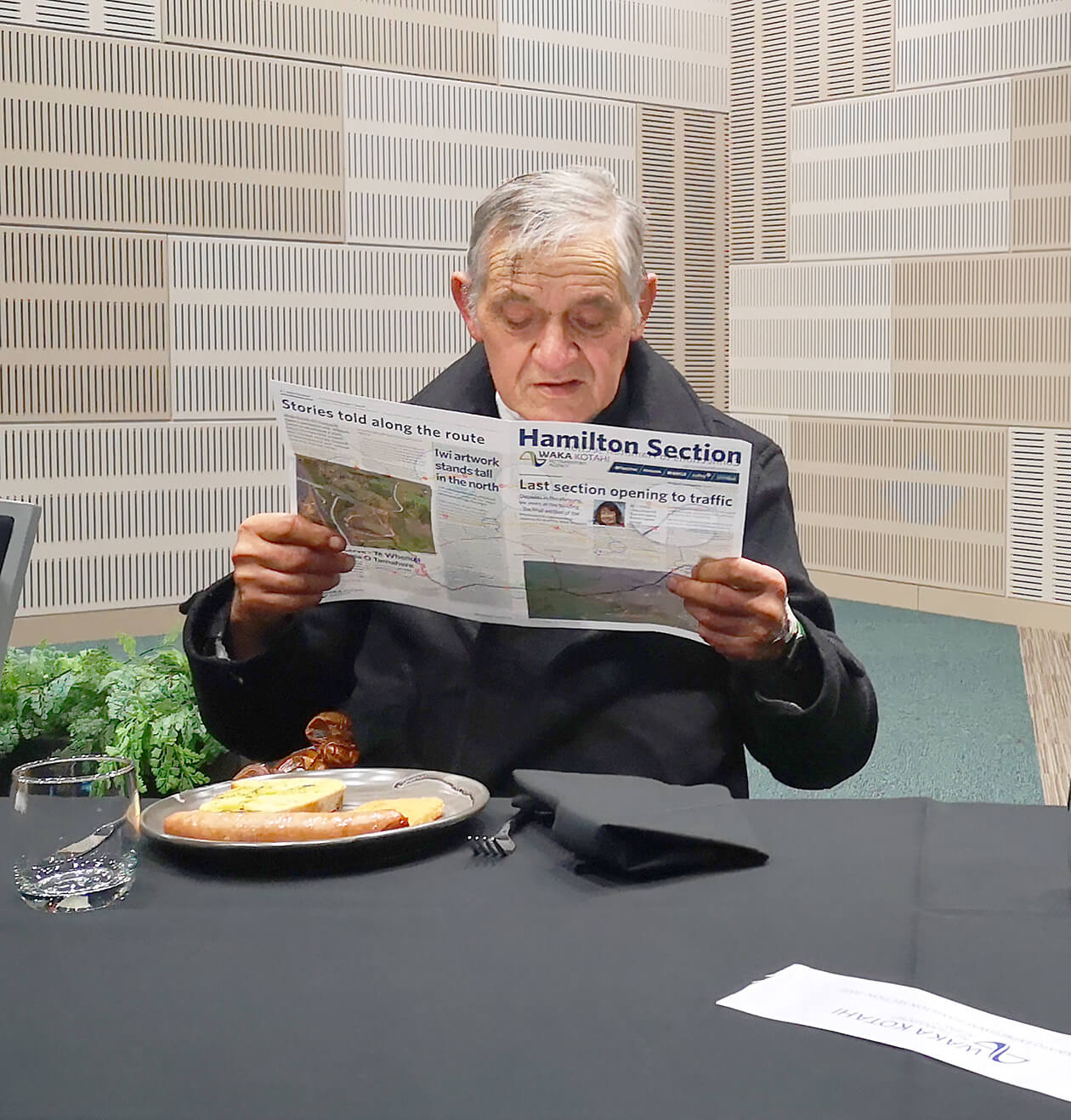
The King was pictured two years ago reviewing the latest stages of the Waikato Expressway project around Hamilton. Photo: Mary Anne Gill
“He kura kua ngaro ki tua o Rangi-whakamoe-ariki. Moe mai raa.”
“A chief who has passed to the great beyond. Rest in love.”
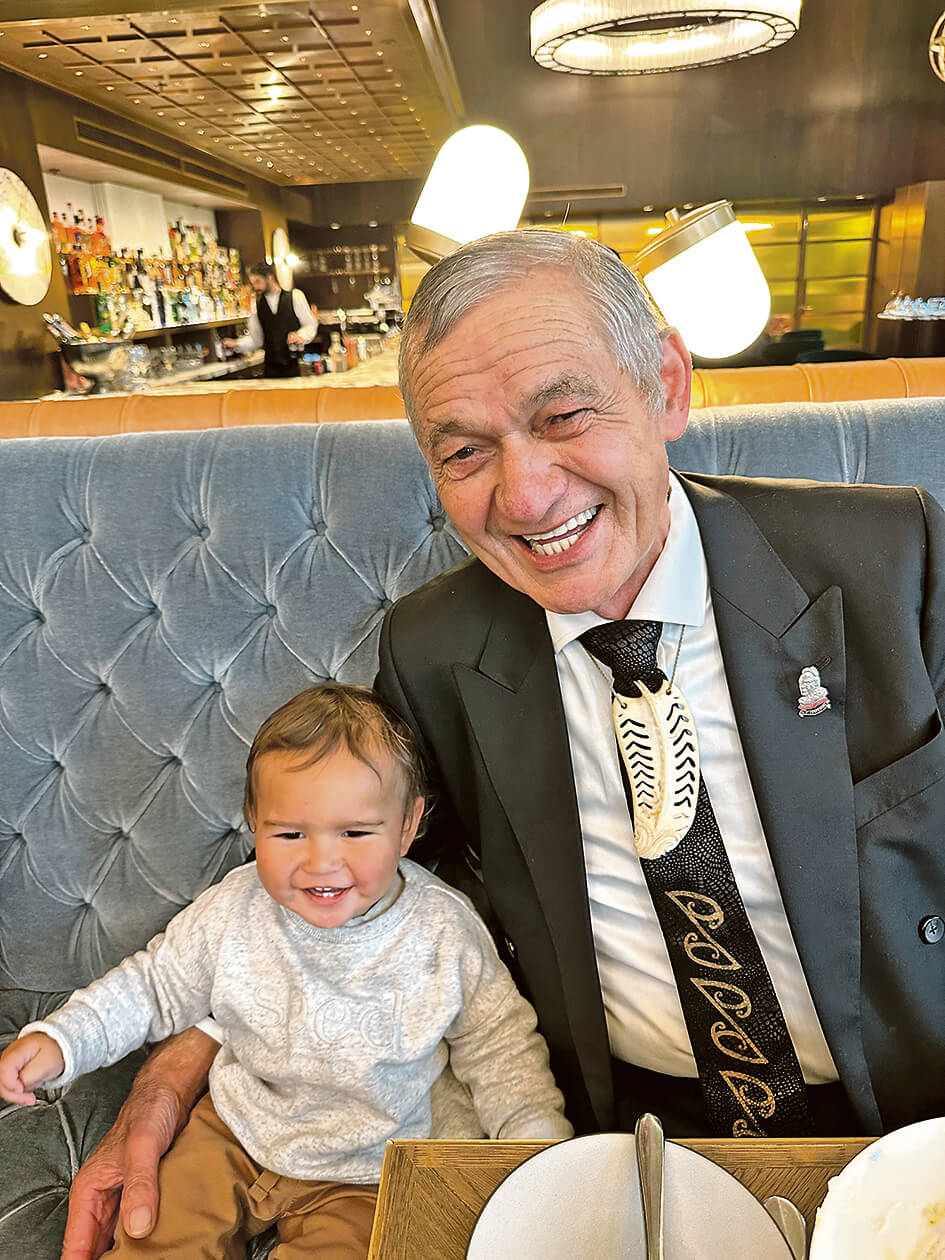
The toddler son of King Country businesswoman Tasmyn Roach, Kahika, met Kiingi Tuheitia after the coronation of King Charles in London, last May, and the two shared a relaxing moment.
The king’s death followed a heart operation on Tuesday, from which he did not recover. Many tens of thousands of mourners converged on Tūrangawaewae marae at Ngāruawāhia over the past week to pay their respects.
Throughout the week, pōwhiri took place twice daily, at 8am and 2pm.
On the paepae, speakers referred to the enduring impact of the King’s leadership, especially in the past year, when his call for a series of hui-a-motu, nationwide meetings, unified te ao Māori and represented an outpouring of pride and mana motuhake, self determination.
One word on everyone’s lips was “kotahitanga,” or unity: the word that encapsulated the King’s legacy and message.
Many speakers also mentioned the love Kiingi Tuheitia had for kapa haka – as the patron of the national Matatini festival, but also his own stands with the Matatini winning kapa Taniwharau (a reference to the many taniwha of the Waikato river) in his younger days.
As well as immense grief, many grieving whānau expressed a sense of disbelief: just last month, the King spoke several times at the Koroneihana festivities, which, each year, acknowledge the anniversary of his coronation.
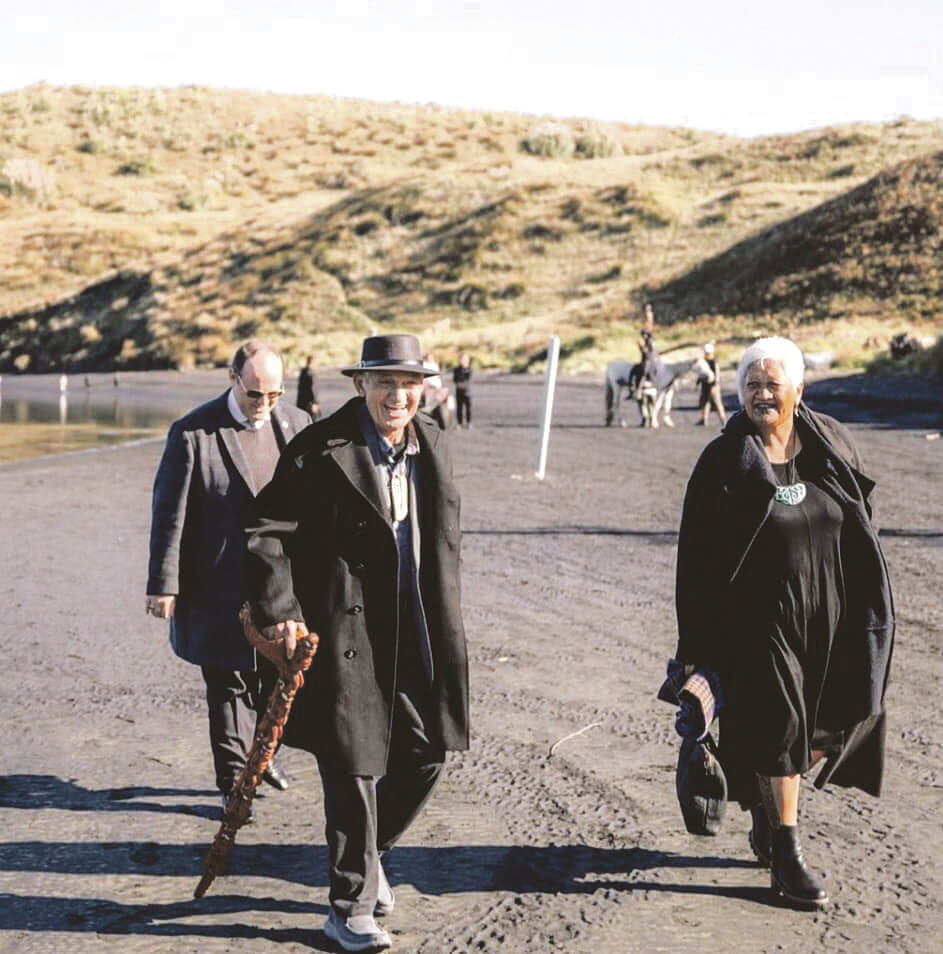
Kiingi Tuheitia and the Makau Ariki Atawhai walked to the poukai at Mirumiru Pā ki Marokopa, earlier this year, having flown back early from the Cook Islands.
The mourning period began on Friday, when Kiingi Tuheitia was moved to the mahau of Māhinaarangi, the ancestral house of Tūrangawaewae Marae.
Immediately, the Kīngitanga and the people of the Tainui Waka began planning the tangihanga, supporting it in all ways, from duties at “the back,” marshalling in the carpark to making sandwiches, to the front, including the whaikōrero, formal speeches, and supporting waiata on the paepae.
The first few days of the tangi were reserved for the Tainui Waka peoples to show their love and support, before other iwi and others in the community including the Governor-General, Dame Cindy Kiro and the Prime Minister Christopher Luxon arrived on Saturday.
Kiingi Tuheitia had just marked the 18th anniversary of succeeding his mother Dame Te Atairangikaahu as the head of the Kingitanga.
The king was born in Huntly on April 21, 1955.
As a child, the man who would become Kingi Tuheitia accompanied his mother at her own 1966 coronation, standing alongside his father, Whatumoana Paki.
See: It became a job for the man.
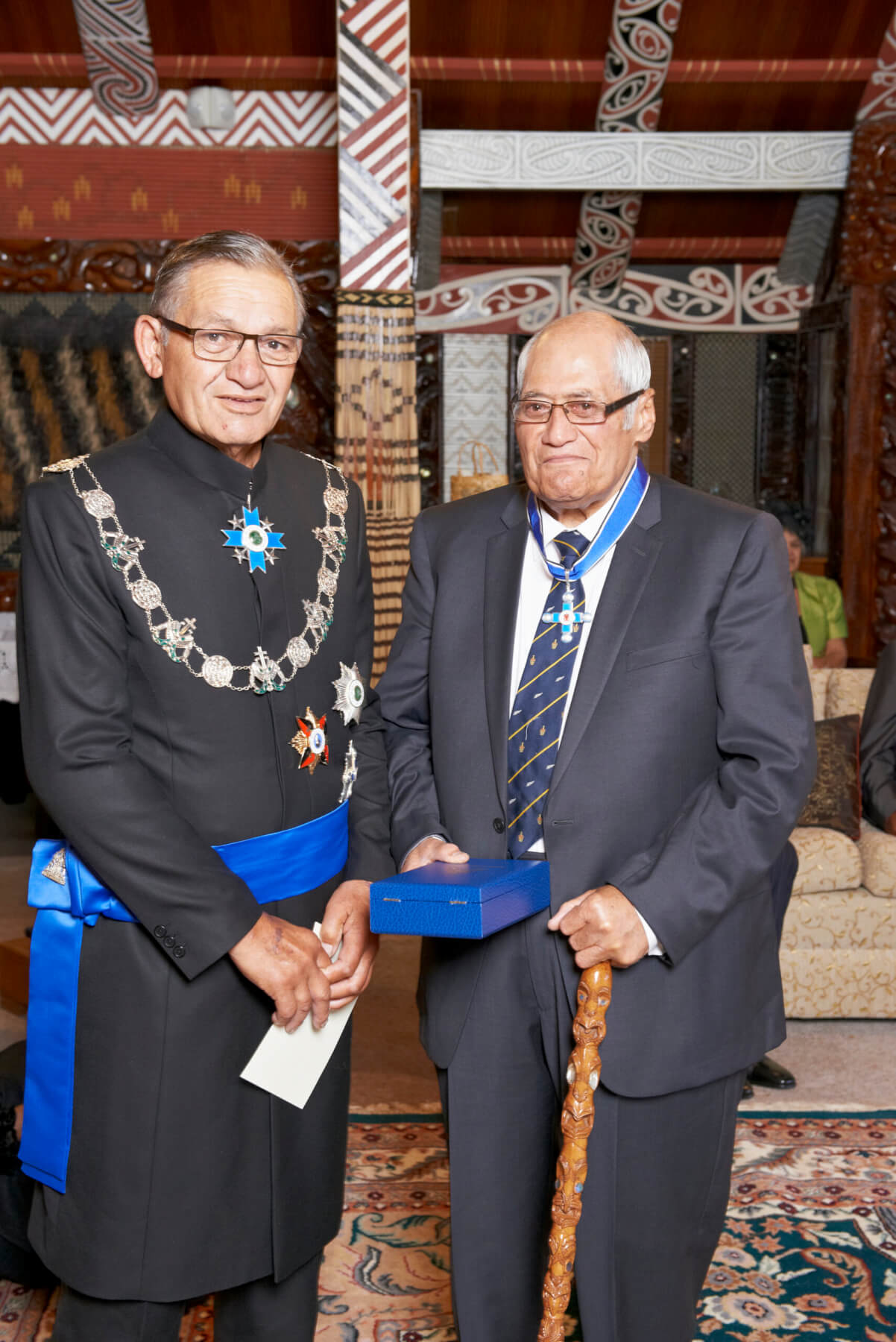
The King with former Minister of Māori affairs, Koro Tainui Wetere, Labour MP from 1969 to 1996.
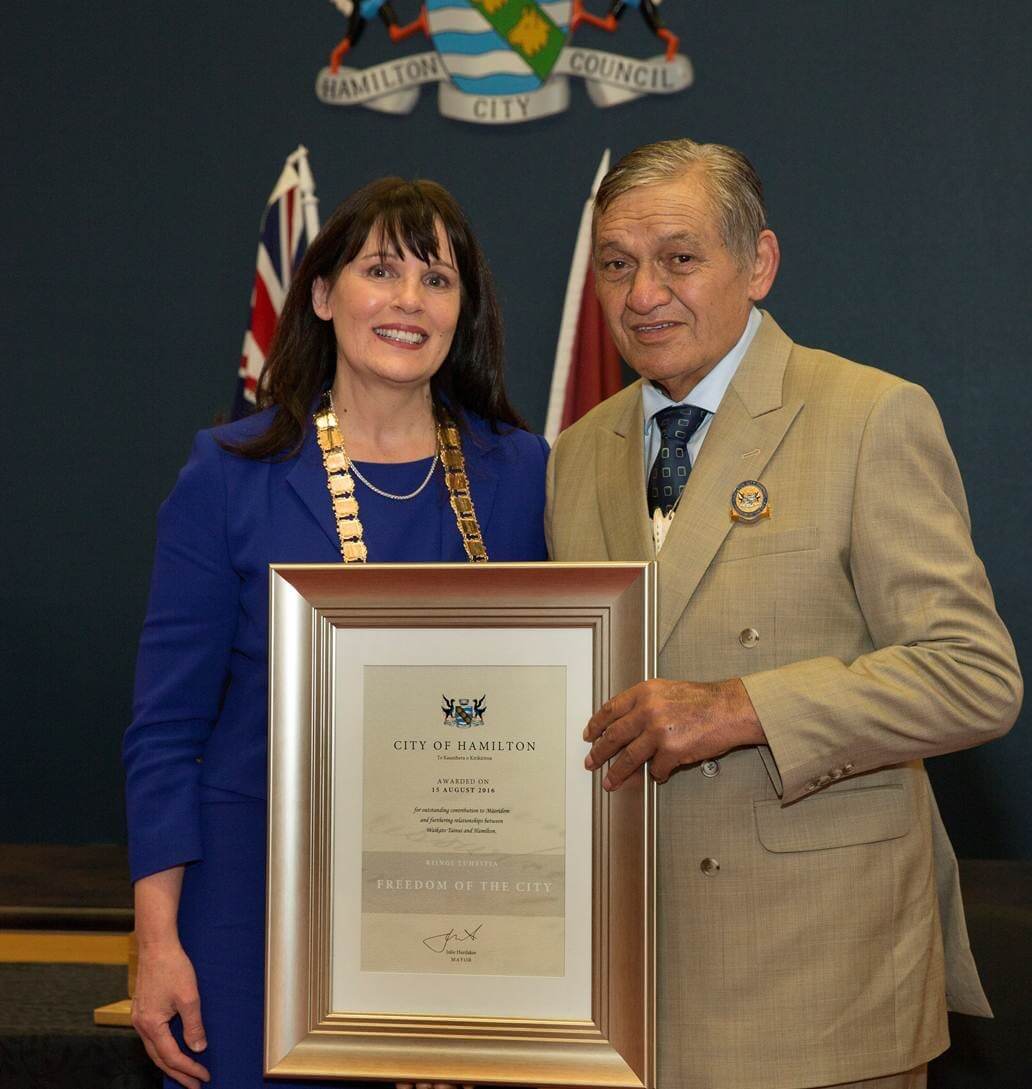
King Tuheitia and Hamilton mayor Julie Hardaker after the king was awarded Freedom of the City in 2016.
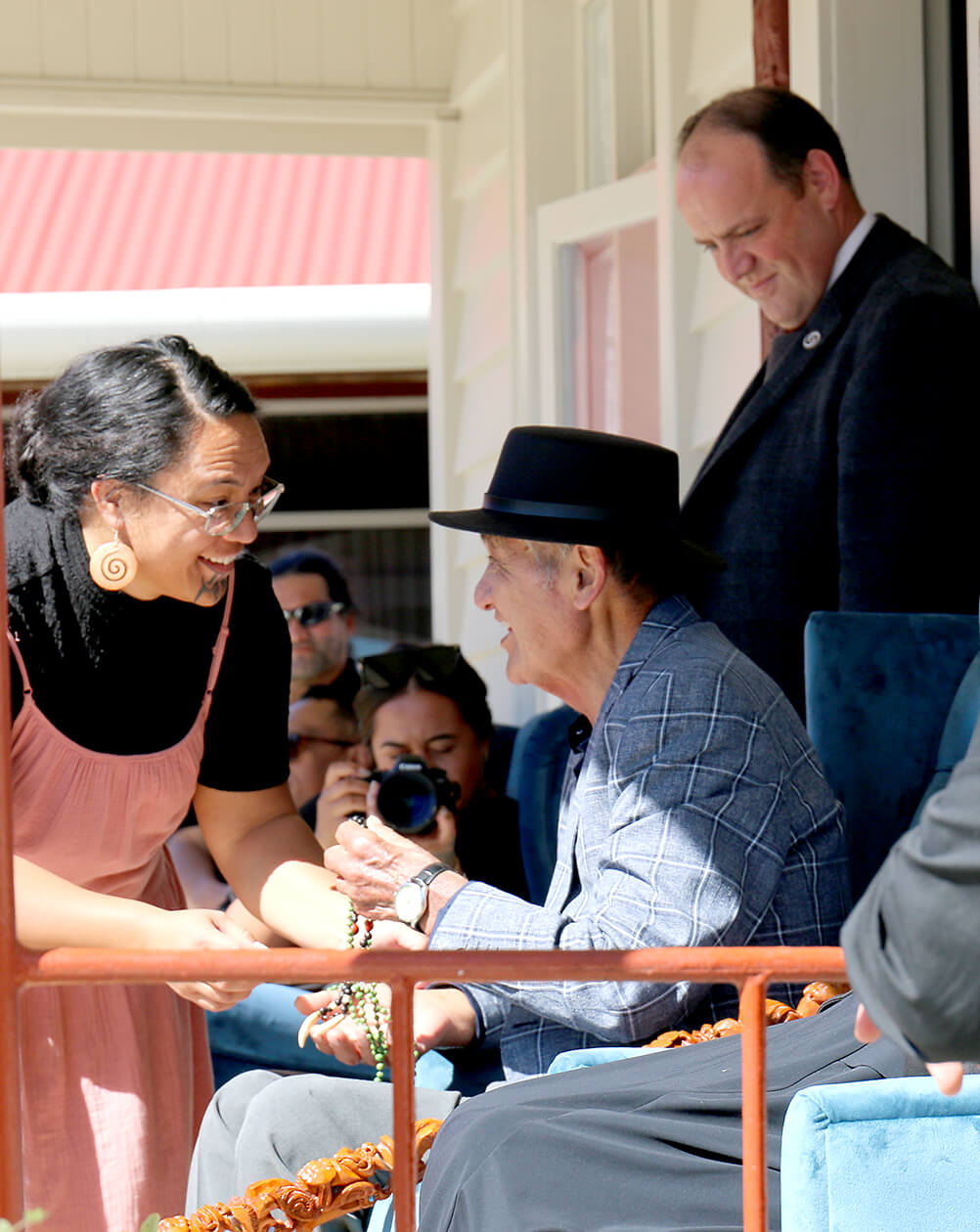
Kiingi Tuheitia at this year’s poukai at Te Kūiti Pā, together with Te Miri Tamaki who is handing him a jaguar tooth necklace gifted from the indigenous people of Sao Paolo, Brazil. Photo: Sigrid Christiansen









